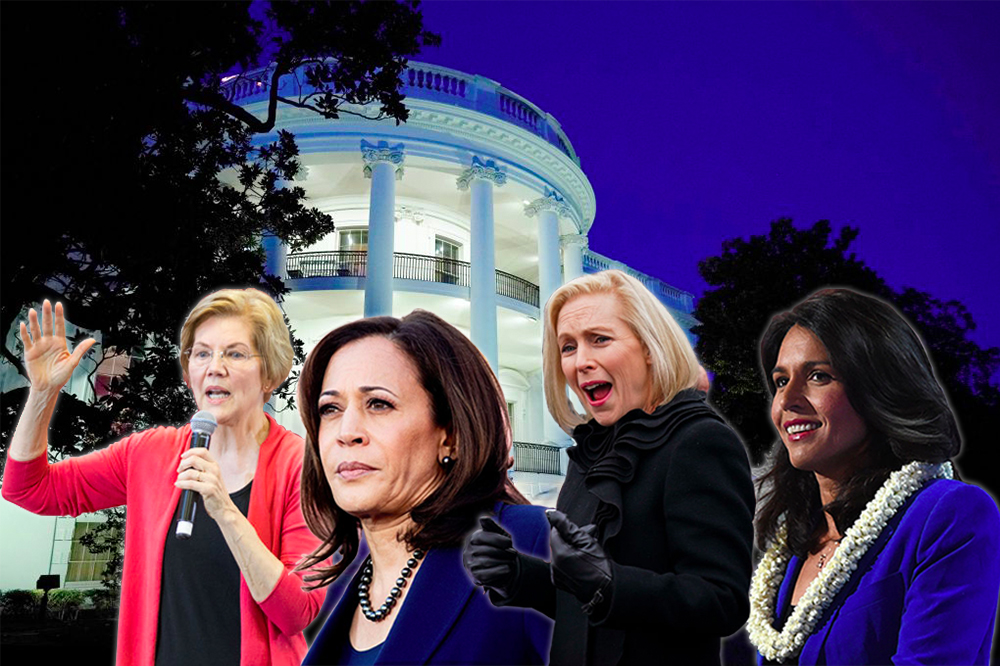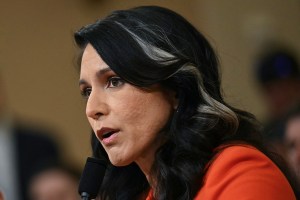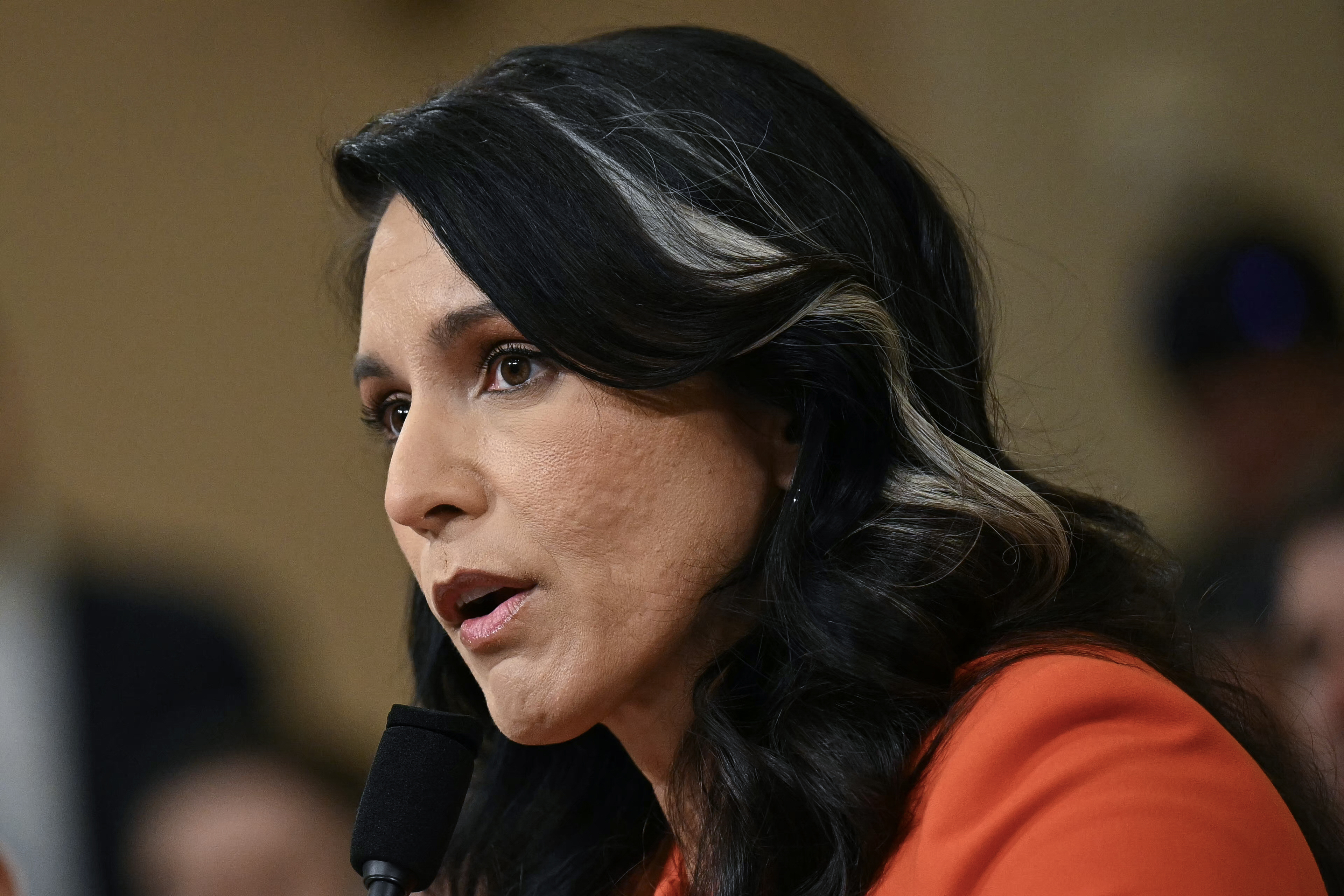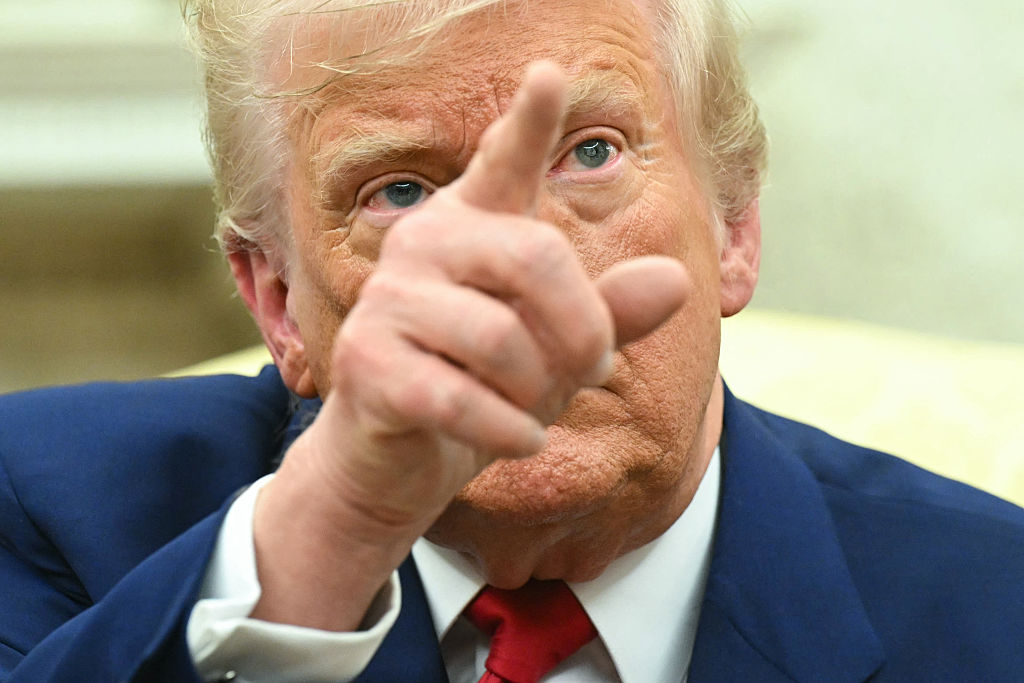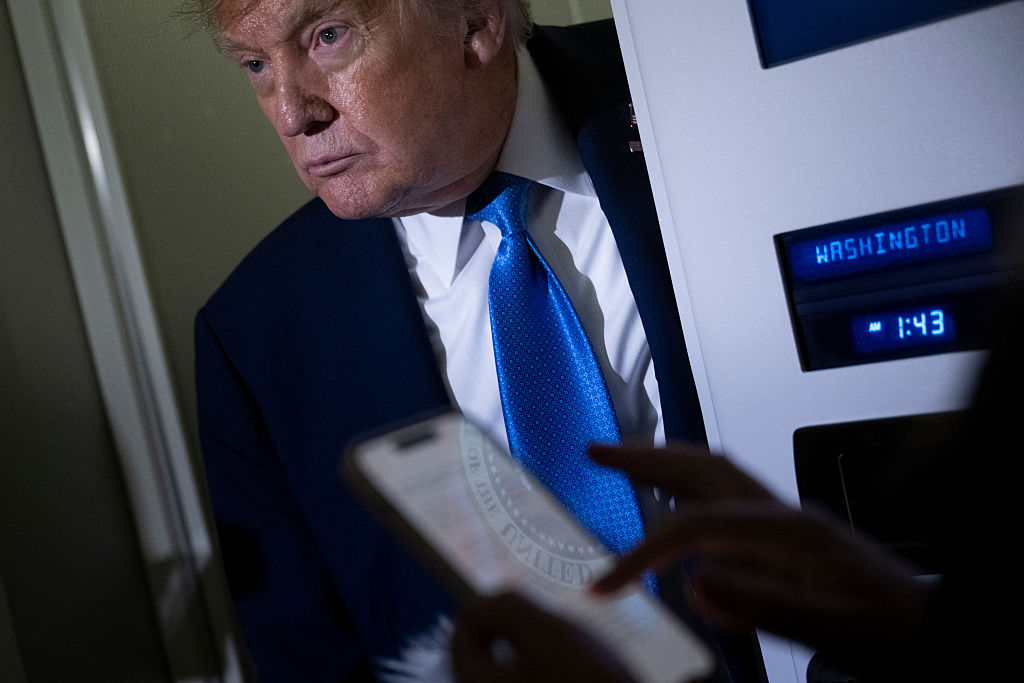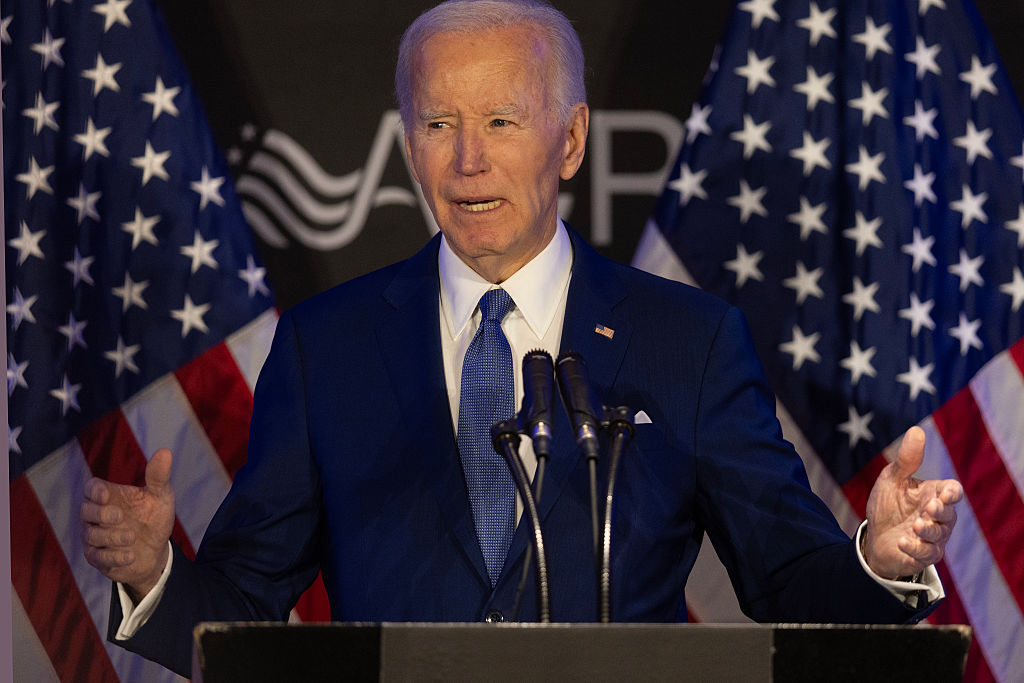It’s no secret that President Donald Trump has women problems. His relationship with his wife seems strained. Feminists loathe him. His popularity among the opposite sex is lower than ever, according to the polls. And, to rub salt into his wounded machismo, he appears to have just lost a fierce political battle over the government shutdown to Nancy Pelosi, the newly reinstalled Democratic speaker.
All week, the commentariat has gushed over the way Pelosi ‘schooled’ Trump in the art of governing by forcing him to reopen the government without giving him the funds he wants to build a wall on the Mexican border. She ‘spanked him’, they say. She ‘kicked his behind’ and ‘brought him to his knees’.
Pelosi-admirers have started to refer to her as ‘the Queen’. They rejoice that Trump, famously adept at coining rude nicknames for his enemies, has lost his knack when it comes to her. ‘Nancy Pelosi, or as I call her, Nancy,’ he said last week, which was amusingly tame.
Democrats now think the President is scared of Pelosi. So do anti-Trump Republicans, who feel he isn’t sophisticated enough to handle a powerful woman with a majority in Congress. She ‘grabbed him by the balls’, said one former Trump White House official.
It’s a remarkable turnaround for Pelosi. Less than two months ago, she had to face down a rebellion from the younger, more radical Democrats coming into power. Her critics said the party needed a fresh face; Pelosi is 78, centrist and botoxed to the nines. But she is shrewd. She dealt with the threat by cutting deals with potential rivals and making the right lefty noises on healthcare, diversity and the awfulness of Donald Trump.
Pelosi is the House Speaker who, in 2010, somehow pushed Obama’s Affordable Care Act through Congress. She knows how power works, and she relishes her public confrontations with Trump. But the Democratic hoopla over her ‘owning’ the President seems premature. We are only three weeks into the new Congress. Trump hasn’t ended the shutdown, merely paused it. Pelosi may be riding high in Washington, but only 34 percent of Americans have a favorable view of her. Americans may not like the way Trump handled the shutdown, but support for his wall is growing. He sees that he can split his opposition over immigration. Pelosi and the Democratic leadership are in fact torn between the radicals in their party, who think all border control is fascist, and the moderates who know that talking soft on immigration means death at the ballot in many key states.
Trump finds the nitty-gritty of congressional politics tiresome, by all accounts. He prefers the drama of big elections, and is said to be obsessed with matching himself up against the possible Democratic nominees for the presidency in 2020. Here again his most prominent challengers are women; there have never been so many female candidates vying to out-progress each other to the top. Alexandria Ocasio-Cortez, the ebullient and well-dressed Latino congresswoman, is all the media rage, and a new icon for the fashionable left. At 29, however, she is too young to stand this time (you have to be 35 to lead the free world, thank God).
But Tulsi Gabbard, an attractive, former military-yet-anti-war surfer from American Samoa (what’s not to like?) is running. She irritates New York Times readers because as a young woman she expressed doubts about the gay-equality agenda. But she’s been trying to sound more LGBT recently and she’s got what millennials call strong social media game. ‘Hey @realdonaldtrump: being Saudi Arabia’s bitch is not “America First”’, she tweeted last year.
Then there is Kirsten Gillibrand, the New York senator and a more standard east coast liberal candidate. She is closely identified with the #MeToo movement, which sees Trump’s presidency as itself a form of sexual assault. But she doesn’t poll well across America and Trump seems confident that he could beat her.
Trump also reportedly fancies his chances of beating Elizabeth Warren. She’s the one he calls Pocahontas because she claims, bogusly, to be Native American. Warren was the first of the Democratic favorites to announce her candidacy, and has impressed political insiders with the forceful start of her campaign. She is an economic populist who has somehow always managed to get on with the party establishment. She knows that Hillary Clinton’s economic pragmatism failed to beat Trump in 2016, which is why she has declared herself the enemy of the ultra-rich, or ’the tippy-toppy 0.1 percent’, as she calls them. The Donald Trumps of this world, in other words.
Warren says her plan will generate more than $3 trillion in fiscal revenue and can be enforced with ‘a very high level of monitoring and auditing… So if you were planning to move them to Switzerland or some island, doesn’t make any difference.’ That sounds sinister even to American swing voters, who have historically been allergic to the idea of wealth seizure. She also has a certain school-marmishness, which a skillful old sexist like Trump should have no trouble ribbing. Her attempts to seem down-to-earth fall flat, such as her cringe-inducing attempt to slug beer from the bottle on Instagram.
Trump will be more concerned by Sen. Kamala Harris, who formally announced her candidacy last weekend and is now favorite to be the next Democratic nominee. Harris is charismatic, eloquent and mixed-race. She has a growing movement behind her: on Sunday, she drew a crowd of about 20,000 to her first campaign rally in Oakland — 5,000 more than Barack Obama drew to his in 2007. There’s an Obamaesque vibe to her schtick, too: she talks about unity and hope. ‘I’m running,’ she says, ‘to be president, of the people, by the people, and for all people.’
Harris ticks the essential progressive boxes on climate change, gay rights, abortion, immigrants and free healthcare. She’s unpopular among trendy radicals because she used to be a public prosecutor, who once menaced the parents of truant schoolchildren with prison. The hard left despises anyone who has worked for the criminal justice system — the cops — but that just makes her more attractive to law-respecting voters.
Democratic strategists have long said that ‘a woman plus minority’ candidate could be unstoppable. To them, Harris is almost the dream antidote to Trump, since they all regard his election as a triumph of misogynistic racism. Identity politics may not by itself be a winning formula, as Hillary found out, but it is a powerful force in America. Hillary, however, was a uniquely flawed candidate; Harris is less dislikable and partly black.
She’s feisty, too. She describes Trump’s plans for a wall as a ‘medieval vanity project’ and presents her candidacy as a call to her country. ‘America, we are better than this,’ she said on Sunday. ‘She’s got major ovaries,’ said one of her fans. Trump won’t like that.
This article was originally published in The Spectator magazine.



